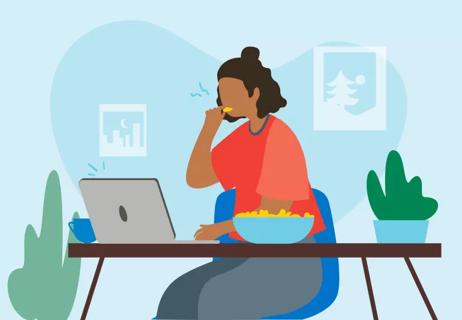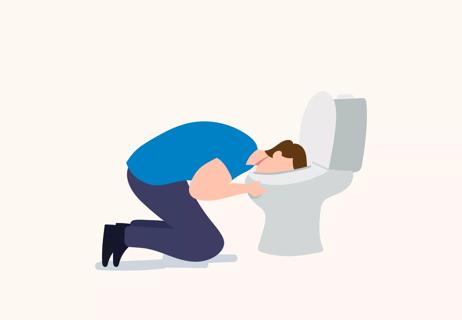How to keep stress from getting the best of you

Your boss is being a jerk. A financial emergency has totaled your budget. You’re not seeing eye-to-eye with your spouse and if one more thing goes wrong, you might just lose it.
Advertisement
Cleveland Clinic is a non-profit academic medical center. Advertising on our site helps support our mission. We do not endorse non-Cleveland Clinic products or services. Policy
Now that your anger and frustration are boiling over, is it even possible to feel at ease again?
We talked to psychologist Adam Borland, PsyD, to get tips on managing life’s little — and not-so-little — irritations.
One of the most effective coping skills is something you already do all the time: breathe. But not just any breathing will do. Dr. Borland recommends diaphragmatic breathing, also known as belly breathing.
This is the type of deep breath that makes your abdomen rise when you inhale. Practice inhaling slowly through your nose and exhaling gradually through your mouth. It may seem too simple to help, but there’s science behind it.
When we’re stressed or upset, our sympathetic nervous system — the fight-or-flight response — activates. Diaphragmatic breathing engages our parasympathetic nervous system, which is what calms us down.
You can enhance diaphragmatic breathing with a calming mantra or visualization, too. Try repeating to yourself “relax” or “let go.” Or imagine relaxing on the beach or in a forest.
“I’m a big proponent of getting some kind of physical exercise,” says Dr. Borland.
“A lot of people tend to misconstrue that as meaning they have to get a gym membership, but that’s not necessary. Walking, taking the stairs — anything that gets you moving a little more than you have been — will help,” he says.
Advertisement
He also calls yoga, with its focus on mindfulness and breathing, a great stress reliever. “Some people scoff at it, but if they try it, they’ll realize that it really helps,” he says.
The internet is filled with free resources and videos to help you get started with yoga or any other quarantine-friendly exercises.
Practicing gratitude can help us highlight the positive things in our lives, Dr. Borland says.
“One thing I’ve really been focusing on with my patients is the idea of gratitude,” he says. “I think in general we tend to go to the negative, and we overlook the good things.”
Try keeping a gratitude journal. Or, make a point of calling or video chatting family members or friends about the things you’re grateful for on a regular basis.
Are you clenching your teeth, balling your fists or tensing your shoulders? Some of the first signs that anxiety or anger are about to overwhelm you occur in your body. Pay attention to these cues. Then try to use some of your coping skills, like diaphragmatic breathing.
“If you can address these symptoms when they’re at a three out of 10, rather than a nine out of 10, it’s easier to calm yourself back down,” says Dr. Borland.
If stress, anxiety and/or anger are starting to impact your life, it’s a good idea to talk to a professional on the phone or through a video call. One simple way to find out is to ask yourself if you’ve been acting in a way that’s out of character:
If you’re going through these changes, talk therapy can be a good way to help you release pent-up emotions and learn skills for handling stress, says Dr. Borland.
Stress — working remotely or from family — is unavoidable. But you don’t have to let it overwhelm you.
These tips should help you keep your cool when life turns up the heat.
Advertisement
Learn more about our editorial process.
Advertisement

From nausea, weight gain and eczema, stress can affect your immune system in many ways

When your senses start to feel overwhelmed, practices like deep breathing can help

From stomachaches and hives to sleepless nights and missed periods, stress can make an impact

You can learn other ways to soothe yourself, including distraction and mindfulness

HALT — hungry, angry, lonely, tired — is a reminder to check in with yourself

3 reasons to put your phone use on pause before sleep

Set your limits and find your balance

Plus, ways to prevent it next time

Type 2 diabetes isn’t inevitable with these dietary changes

Applying a hot or cold compress can help with pain